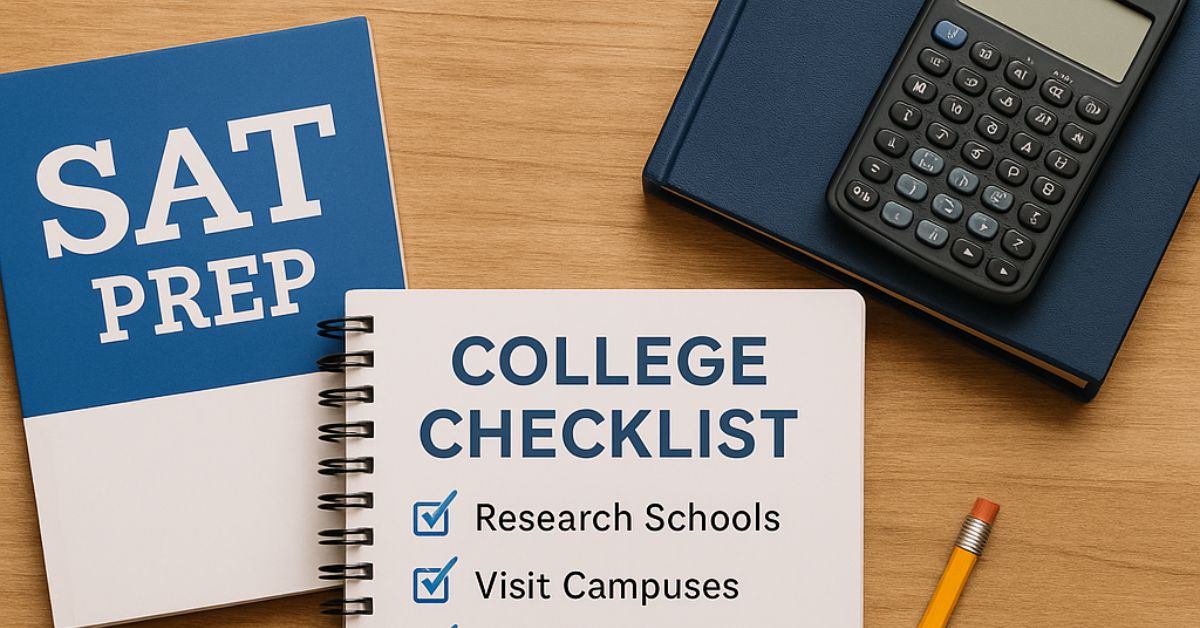Homeschooling offers incredible flexibility, but when it comes to preparing your homeschooler for college, it’s common for parents to worry about how to meet expectations or match traditional pathways. The good news is that homeschoolers have proven to be highly successful in their college applications, thriving in academic institutions across the country. With the right guidance, your homeschooler can transition seamlessly into college life and stand out in the application process.
This guide will walk you through essential steps for college prep for homeschoolers, breaking down strategies for both the transition to college and specific application tips.
Navigating The Homeschool To College Transition
Shifting from homeschooling to a college environment is a big adjustment for any student. College introduces structured schedules, institutional expectations, and social opportunities that may feel new for homeschoolers. Here’s how you can prepare your student for these changes.
Develop Strong Study Habits
One of the best ways to prepare your homeschooler for college is by helping them build solid study and time-management skills. Since colleges demand consistent organization, discipline, and independent work, it’s essential to equip them with these tools while they’re still at home.
- Set up a daily schedule that mimics a college timetable with set study periods and breaks.
- Teach goal-setting by having your student outline short- and long-term academic objectives.
- Encourage independent learning by introducing increasingly challenging self-guided projects.
Starting these habits early will make college expectations feel more familiar and achievable.
Encourage Opportunities for Social Growth
For homeschoolers, transitioning to a college social environment can be just as significant as the academic adjustment. Help your child build confidence in group settings by encouraging social interactions and collaborations in their teenage years.
- Promote group learning activities, such as joining homeschool co-ops or community classes.
- Volunteer or participate in activities outside the home that offer leadership opportunities.
- Attend dual-enrollment courses at a local community college so they can experience a classroom environment.
These experiences will ease the transition and build the confidence they need to connect with peers in a college setting.

Teach Executive Functioning Skills
Executive functioning skills, such as task prioritization and time management, are critical for success in higher education. Homeschoolers can hone these skills through real-life applications of planning and decision-making.
- Encourage your child to use planners or time management apps like Trello or Notion.
- Assign responsibility for certain household tasks, such as meal planning, to build decision-making muscles.
- Have open discussions about deadlines, priorities, and managing stress.
By the time they enter college, they’ll have a stronger grasp of self-organization and adaptability.
Setting The Framework For A Strong College Application
A standout college application focuses on much more than just good grades. Admissions officers are looking for well-rounded students with unique stories, and homeschoolers have an advantage in this area. Their nontraditional schooling shows they can think outside the box, but evidence of rigorous academics and extracurriculars is needed to back this up.
Start by creating a stellar homeschool transcript. A transcript should clearly outline courses taken, grades received, and credits earned. Be detailed in explaining academic rigor; for example, note which classes were AP-level or included hands-on projects. Colleges will also appreciate a short “course description” for less conventional topics or customized electives.
Standardized tests, like the SAT or ACT, are also a key factor in many admissions decisions. While some colleges have moved to test-optional policies, your student’s score can still strengthen an application. Begin practice tests early so they’re comfortable with the format.
Supplement the transcript with a portfolio if your student has worked on unique projects or achievements. For example, if they pursued independent research or wrote a novella as part of their coursework, include it in a portfolio to impress admissions teams with their initiative and creativity.
Extracurricular activities are equally important. Whether your student has participated in sports, music, or community programs, admissions officers want to see passion and leadership. Discuss with your child which activities they’ve loved most, and encourage them to deepen their involvement or aim for leadership roles.
Finally, letters of recommendation might be a challenge for homeschoolers. Instead of teachers, consider asking tutors, co-op instructors, or non-family mentors (e.g., a coach or employer) to write about your child’s skills and character.
Core Academic Preparation
A strong academic foundation is one of the cornerstones of effective college prep for homeschoolers. Here’s a breakdown of what to focus on across different stages.
Selecting High School Courses
Colleges expect homeschoolers to meet the same academic standards as traditionally schooled students. Make sure your child’s high school coursework includes:
- English: Four years of literature, composition, and analysis.
- Mathematics: Courses should include at least Algebra I, Algebra II, Geometry, and ideally pre-Calculus or Calculus.
- Science: Three to four years of lab-based sciences like Biology, Chemistry, and Physics.
- Social Studies: Cover U.S. History, World History, Government, and Economics.
- World Languages: At least two years of consistent study in one language.
If your student has specific college aspirations, check the general admission requirements of their top-choice schools and tailor their course load to meet or exceed those expectations.
Earning College Credits in High School
Many homeschoolers get a head start by earning college credits through dual enrollment, Advanced Placement (AP), or International Baccalaureate (IB) classes. Dual-enrollment courses at community colleges are particularly useful since they offer firsthand experience in a college setting and carry transferable credits.
Here’s why these options are worth exploring:
- AP and IB Courses: Exams allow students to demonstrate academic rigor while potentially earning college credit.
- Dual Enrollment: Provides exposure to a structured classroom environment and reduces the number of credits your child will need to take later.
- CLEP Exams: Homeschoolers can gain college credit for knowledge in specific subject areas by passing these standardized tests.
These options make a transcript stand out and can reduce tuition costs down the line.
The College Research And Application Process
The road to college starts with thoughtful research. Encourage your homeschooler to research a range of colleges based on size, location, area of study, and culture. Be sure to investigate each school’s policy toward homeschool applicants, as some may have specific documentation requirements.
Once a list of colleges is narrowed down, help your child stay organized by creating a timeline for applications. This timeline should include deadlines for tests, essays, financial aid, and submission dates. Tools like spreadsheets or even a simple folder system can keep everything in one place.
The college application essay is where homeschooling students have an opportunity to shine. Homeschoolers often have unconventional learning experiences, and colleges love reading about how these have shaped a student’s character and interests. Encourage your child to focus on storytelling and share their passion, challenges, and growth. Admissions officers want genuine, personal reflections over polished perfection.
Finally, don’t overlook financial aid and scholarships. Homeschoolers are eligible for the same federal and private funding as traditional students. From FAFSA applications to private merit-based scholarships, the earlier you begin the research, the better your odds of securing financial aid.
Actionable Tips to Boost Your Homeschooler’s College Readiness
It’s never too early to start integrating foundational practices and habits that make your homeschooler college-ready. Here are a few practical steps:
- Use mock admissions interviews to help your child gain confidence when speaking about their goals and experiences.
- Plan campus visits so your child can immerse themselves in the college environment and better envision themselves there.
- Introduce them to writing-intensive projects to build robust essay-writing skills.
By laying this groundwork, you’ll ensure your student is both academically accomplished and personally confident when transitioning to college.
The path from homeschool to college is entirely achievable. With strong organization, strategic academic preparation, and a thoughtful application process, your homeschooler can not only meet but exceed expectations in their college pursuits. Encourage your child to own their education, and together, you’ll open the door to endless opportunities for their future.





